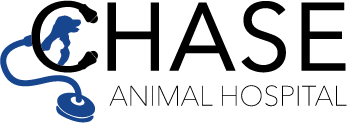Pet Health Articles
-
The pro-opiomelanocortin (POMC) gene, if mutated, can contribute to increased body fat and body weight and increased food motivation in affected dogs. At this time, this gene mutation has only been found in the Labrador Retriever and Flat-coated Retriever and affects the majority of those working as service dogs. This handout explains how the POMC gene mutation was discovered, how it impacts affected dogs, and how you can support your dog if affected.
-
Medical waste includes needles, syringes, body parts, bodily fluids, feces and medications among other things. This handout addresses some of the ways such waste can be safely disposed.
-
Many dogs love to get out to socialize and exercise with their canine friends and dog parks are their go-to spots for getting together. Proper etiquette, from both you and your pup, will allow everyone to enjoy the park safely and courteously. However, dog parks are not a good fit for all dogs.
-
No hyperactive ankle-biter, the Pug has a stable and noble way, befitting a much larger dog - and a giant personality to match.
-
A barking mop on springs, the Puli is a perky and personable dog that gets lots of second looks for his Rastafarian locks.
-
A successful life with a family dog starts with great training for your puppy. Planning to set puppies up for success, learning how to use management, positive reinforcement, luring, capturing, and shaping will help owners train their puppies successfully. Positive puppy training and socialization classes are also beneficial for healthy puppies over eight weeks of age.
-
Every puppy will become a dog who needs veterinary care, grooming, and handling. Starting in puppyhood, owners can use positive training techniques to teach their puppies how to accept and enjoy restraint, basic procedures, and home husbandry.
-
Providing puppies with positive socialization experiences may prevent the development of future fears. Puppy socialization must be done gently to avoid accidentally causing fear. Puppies are most primed for socialization before the age of 14 weeks. By taking precautions, some careful socialization can and should be done even before puppies have completed their entire vaccination series.
-
Though every puppy is an individual, large, and giant breed puppies in particular require an individualized approach to nutrition, since they have some different needs compared to small and medium breed dogs. When it comes to puppy food, one size does not necessarily fit all.
-
Pyoderma is a bacterial skin infection that can affect all areas of the skin, including skin folds, often seen as red, pus-filled pustules. Treatment may require oral or topical medications and it is always a good idea to practice good hygiene. Pyoderma carries a good prognosis for recovery but recurring or chronic cases may require longer treatment and additional testing to determine an underlying cause.

